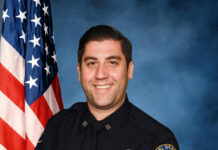The Seal Beach Planning Commission decided on Wednesday, Sept. 21 that churches are not allowed on Seal Beach Main Street. The decision was made by three planners. Commissioner John Larson was absent. Commissioner Henry Eagar resigned in September and while his replacement has been appointed, the new commissioner will attend his first meeting in November.
The issue of churches on Main Street came up in July when Pastor Joel Iervolino of Damascus Church of Seal Beach, wrote a letter to the Planning Commission. “It is our dream and desire to purchase the Bay Theatre to be the future home of Damascus Church,” Iervolino wrote.
On Monday, Oct. 26, Iervolino told the Sun Newspapers that he was not notified about the Planning Commission meeting. He did not know the issue had come up until after the decision had been made.
He said he was honored the commission considered his request.
Iervolino also said he would probably not pursue the matter.
According to his letter, four years ago, Iervolino and his wife founded the Damascus Church of Seal Beach. The church meets on Sundays in the Marina Park Center and on weekdays in homes throughout Seal Beach. The Iervolino’s moved to Seal Beach two years ago.
Iervolino said he was ordained in 2001.
Damascus Church is affiliated with the International Church of the Foursquare Gospel, a Pentecostal church founded by evangelist Aimee Semple McPherson in the early 20th Century.
McPherson was a pioneer in using radio to evangelize and became one of the first celebrity ministers.
She integrated her church services. She is better remembered today by the general public for the controversies surrounding her personal life than for her ministry. According to the Web site for the International Church of the Foursquare Gospel, there are 55,000 Foursquare Gospel churches worldwide.
In his letter, Iervolino acknowledged that the Main Street Specific Plan did not include churches, but asked if a church might qualify as a “similar use” allowed under the Municipal Code.
The Iervolino letter said he wanted to use the Bay Theatre not just for church services but also for family movies on Saturdays, marriage seminars, community events and award banquets.
“I think it would help the economy,” Iervolino told the Sun. He asked what else could be done with the property. He pointed out that many churches use theaters. They have seating, a stage and a sound system that fits the needs of a church.
The issue of churches on Main Street came before the Planning Commission last week, when the planners reviewed Iervolino’s request.
According to the staff report signed by Senior Planner Jerry Olivera, the city code allows planners, if a land use is not specifically mentioned in the Main Street plan, to a use that is allowed under the Specific Plan.
“The Main Street Specific Plan does not include churches as either a permitted or conditionally permitted use,” the staff report said.
The staff resport said the vision for Main Street was for an area with a mix of offices and businesses, surrounded by mixed housing and institutions. “The plan recognizes Main Street as the heart and soul of Seal Beach,” the report said.
“Although the Main Street Specific Plan does not list churches in the Main Street Specific Plan area, churches are allowed in many other areas of the city,” the report said.
According to the staff report, there are in fact five “religious institutions” within walking distance of the Main Street Specific Plan area. The closest of these is Grace Community Church, located on the corner of Eighth Street and Central Avenue. Grace Church stands just outside the border of the Main Street Specific Plan. That border includes Central Avenue and the fire station located on the corner directly opposite Grace Church.
“It is staff’s position that a church use is not similar to other permitted or conditionally permitted uses in the Main Street area and is not consistent with the Main Street Specific Plan,” the staff report said.
“The commercial center has been able to retain its small town character due to those businesses that depend on and support the adjoining residential development,” the report said.
“It is important that they be retained and other similar uses be encouraged to establish on Main Street whenever possible,” the report said.
If planners had agreed with Iervolino, the commission would first have to revise the Main Street Specific Plan, then amend the Zoning Code and, finally, hold a public hearing on whether to grant Damascus Church a Conditional Use Permit to operate a church in the Bay Theatre.
Iervolino told the Sun that he had not contacted the owners of the property, but he did speak with the real estate agent representing them. At the time, he said the price they were seeking was approximately $2 million or so.
Iervolino agreed that was a lot of money, but was confident the money could have been raised. “People don’t give to need, they give to vision,” he said.












